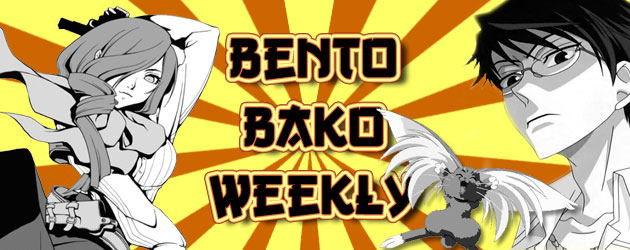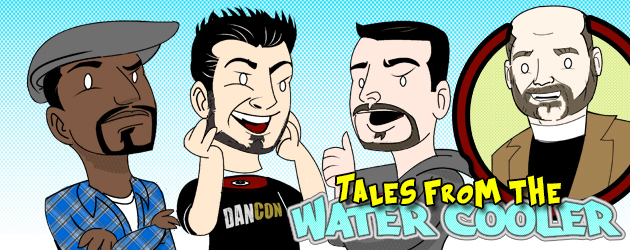[Note from the author: Thanks to Jeremy Darko for the cool new banner.]
 Title: Road to Perdition
Title: Road to Perdition
Director: Sam Mendes
Writer: David Self (created by Max Allen Collins and Richard Piers Rayner)
Distributed By: DreamWorks
Starring: Tom Hanks, Paul Newman, Tyler Hoechlin, Jude Law
Release Date: July 12th, 2002
Michael Sullivan is both a family man and a right hand man for the Irish mafia. He works for father-like boss John Rooney, a kind but ruthless kingpin of the underworld, and also works with his violent and greedy son Connor Rooney. At home, he’s close to wife Annie (Jennifer Jason Leigh) and Peter (Liam Aiken), but not his son Michael Sullivan Jr. But when John Rooney has Annie and Peter killed in cold blood, Sullivan must take the only son he has left and protect him while taking revenge on the Rooneys.
Although many of the comic book adaptations are big budget films featuring superheroes in tights or armor, not all comic book films are about that. Sometimes a comic book film will delve into more serious and realistic topics (and no, I’m not talking about The Dark Knight). Sometimes you’ll get a comic book film taken seriously by even the critics. Sometimes you’ll get a film such as Road to Perdition; a film that’s more about the story than any cool ideas or action sequences.
The film isn’t anti-comic book or anti-film, though. There’s plenty of common elements revolving around violence, sharp dialog, and unique characters.
What separates this from many comic book films, is the emphasis on theme. Theme always plays a major part for most films, but it usually rests in the background. Here, the themes are front and center in the film, always present. Whether it’s through symbolism, metaphors, or the dialog (which thankfully isn’t obvious or pretentious).

The biggest theme, the one that’s both the capstone and heart and soul of the film, is the theme around fatherhood. It’s interesting seeing the relationship between the Sullivans and the Rooneys and how each intersects. Michael Sullivan (Tom Hanks) and Michael Sullivan Jr. (Tyler Hoechlin) tell the story of a father and son who are very similar people yet distant, reconciling and getting closer as they journey together on the road. Michael Sullivan and John Rooney (Paul Newman) are as close as father and son as non-blood can be (in some ways like Don Corleone and Tom Hagen), but yet are distant in the fact that both of them are dangerous men and soon become enemies. John Rooney and Connor Rooney (Daniel Craig) are father and son, as John Rooney protects Connor Rooney despite the fact that Connor’s incompetence is a threat to both John and his empire.

But it’s not just theme that takes center stage here. The characters and relationships are prominent in the film, too, all in part due to a terrific cast. Whenever you have Tom Hanks and Paul Newman in a film, you’re bound to get solid performances. I wouldn’t say it’s their most memorable performances, but it’s hard for any character to garner top spot when you have actors with careers as prolific and prestigious as theirs.
I also liked Tyler Hoechlin’s performance as well. Most children in films suffer from annoying brat syndrome, where all you want to do is slap them upside the head every fifteen minutes. But Michael Sullivan Jr. is a well adjusted and reliable kid. He may be a trouble maker in it or complain from time to time, but it’s understandable given his circumstances.
The only character I have a beef with is Harlen Maguire (Jude Law). The problem with him is that he feels cartoonish in an otherwise serious film. It’s almost like having The Red Skull in Schindler’s List. Not a bad villain, just a bad placement.

One other strong aspect of the film is the cinematography and design (lights, sets, costumes, etc.). The scenes take your breath away, not too polished but not too gritty, either. It doesn’t feel like a period piece, but rather like you are in the Prohibition era. Cinematographer Conrad L. Hall even won an Oscar for his work on it.

This doesn’t mean that all comic book films should be “serious” or even that this is the best comic book film of all time (although it would probably be in my top ten). However, films like Road to Perdition or A History of Violence should be noted as comic book adaptations, rather than having those connections swept under the rug or left unnoticed. Because comic books aren’t just one style or adaptation. Comic book films can explore a variety of topics and subjects, delve deep into emotions and ideas, and can be just as valid and important as any movies adapted from plays or novels.
Andrew Hudson
ahudson@comicattack.net
@Hudsonian



Damn man you must have been readin’ my mind! I watch this movie at least once a month because it’s just that damn good. From the script to the cinematography this is just one great movie and anyone who hasn’t taken a look should do so quickly.
The story has a bit of a Lone Wolf and Cub vibe to it just in the fact you have a revenge plot taking place while a kid is in tow. I also found it funny that it was pretty hard to convince my friends that this was a comic book story first because of the stigma placed on those types of films.
Great review! I’ve never seen this flick, but I’m gonna have to check it out. 😀
Pingback: Movie Mondays: Old Boy